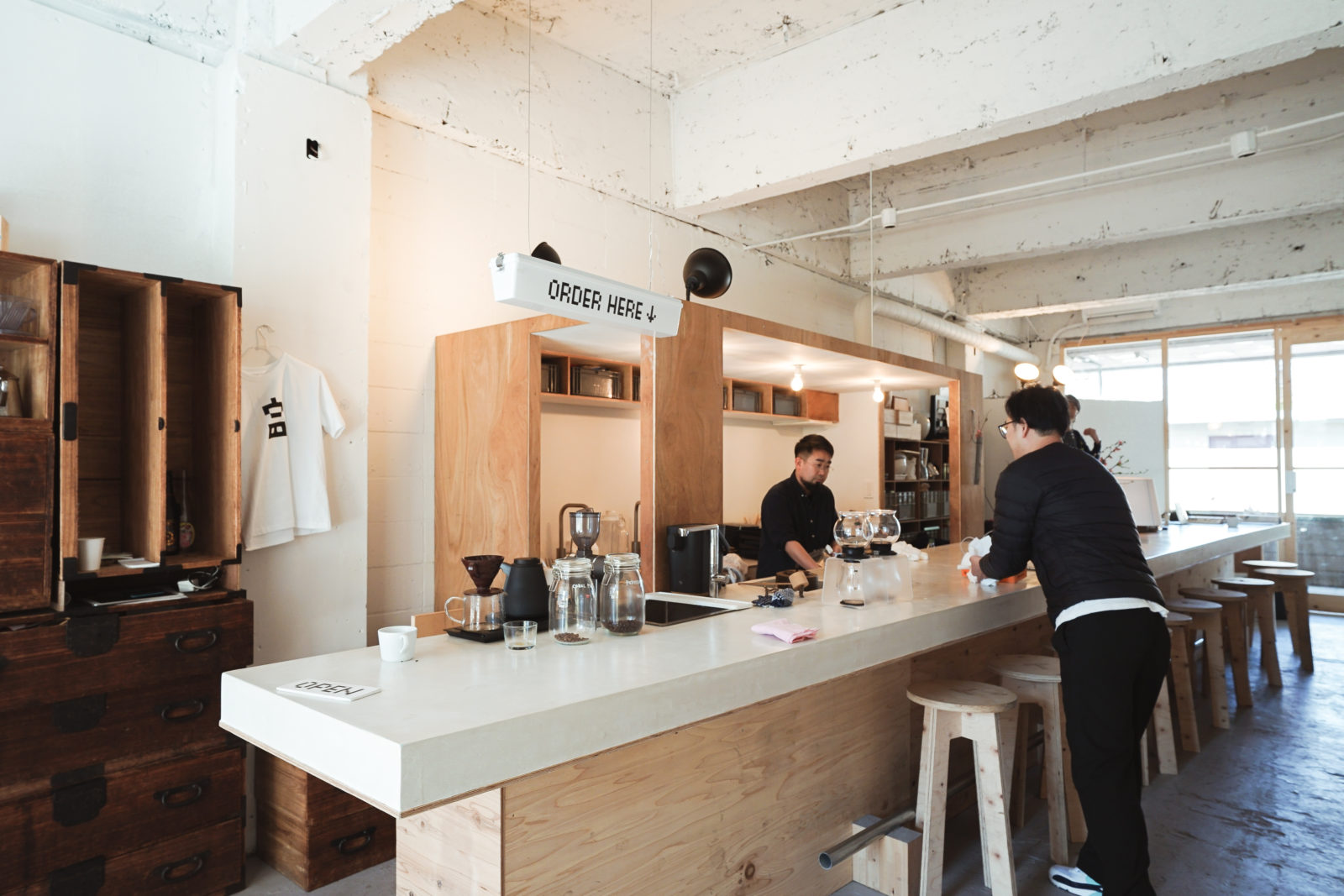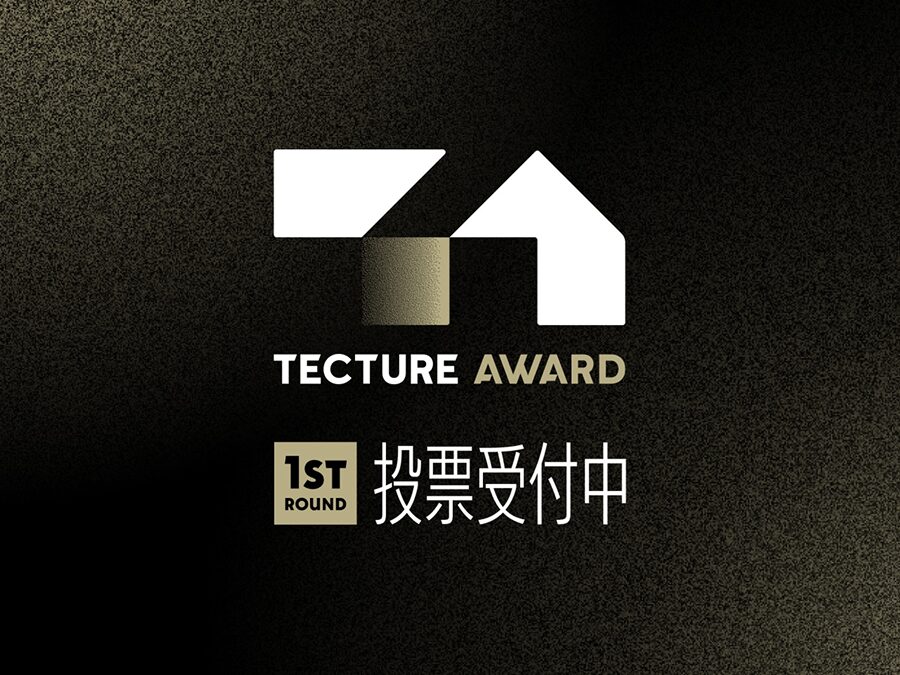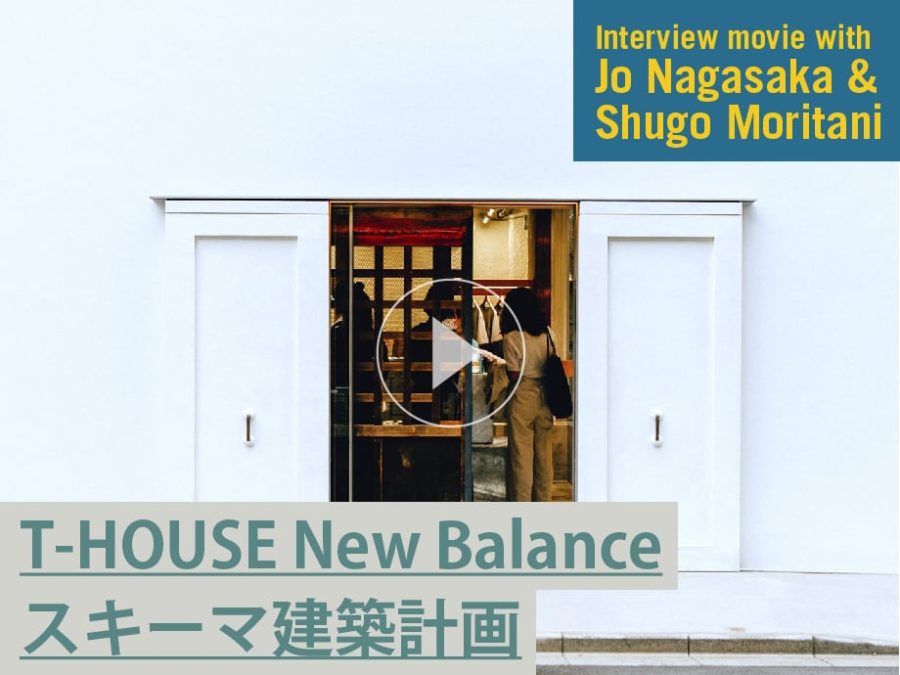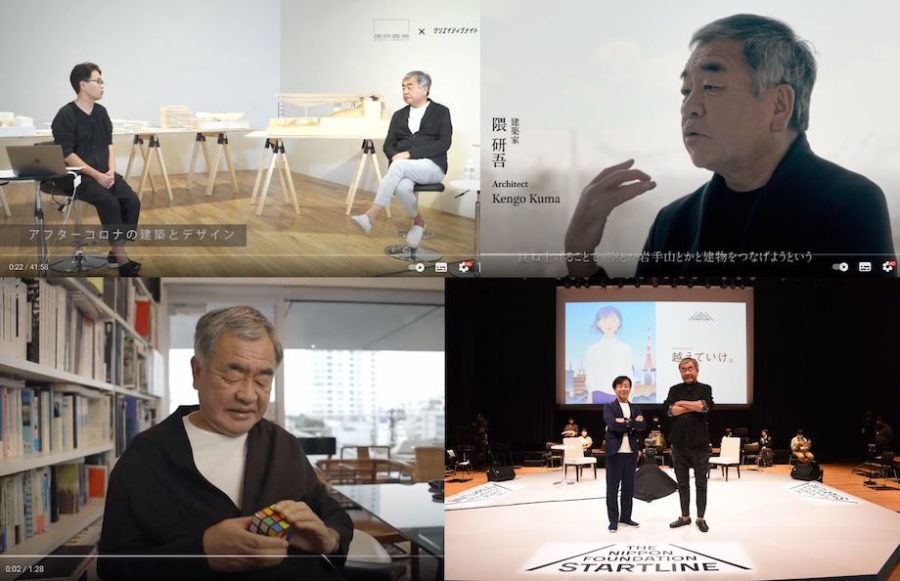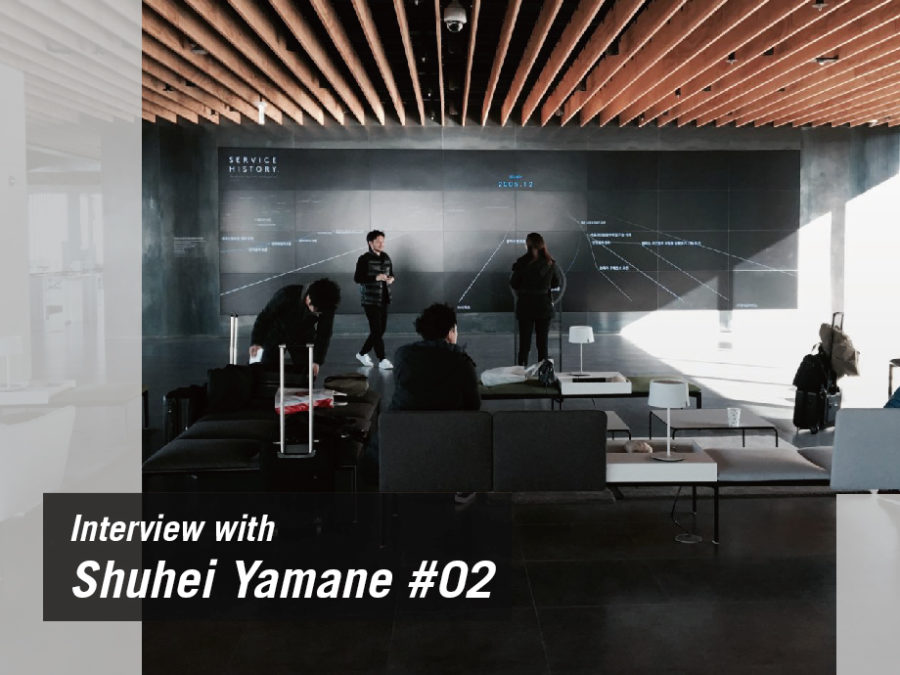アトリエ系の建築設計事務所に勤めた後、2010年に独立した能作淳平氏(ノウサクジュンペイアーキテクツ)。
2020年には、東京都の郊外にあるニュータウンで〈富士見台トンネル〉という事務所+シェア商店をクラウドファンディングで実現。
暮らす場所と仕事をする場所、コミュニケーションをする場所について考え続け、場づくりをしてきた能作氏に、インタビューしました。
実践を通して見えてきた、これからの働き方とは!?
また、建築家の職能の活かし方についても、考察を進めていく能作氏。
建築家はどのようにプロジェクトに関わり、いかに経営を成り立たせるのか!?
「小さな実験を繰り返してきた」という能作氏が見出した可能性に迫ります。
(jk)
Photographs: toha
Junpei Nousaku (Nousaku Junpei Architects) became independent in 2010 after working for an atelier-type architectural design firm.
In 2020, he crowdfunded an office and a shared store called “Fujimidai Tunnel” in a new town in the suburbs of Tokyo.
We interviewed Mr. Nousaku, who has been thinking about creating places to live, work, and communicate.
What are the future ways of working that have come to light through his practice?
Nousaku also discusses how architects can make the most of their profession.
How do architects get involved in projects, and how do they manage them?
Nousaku says, “I have been repeating small experiments,” and we will look into the possibilities he has discovered.
(jk)
Photographs: toha
ベッドタウンで働いてもいい
事務所がある〈富士見台トンネル〉は、働き方が1つのテーマです。
僕はたまたまこの団地に引っ越してくることになりまして。それまではずっと都心にいたんです。
長谷川豪さんのところにいたころは渋谷に事務所があって、中目黒に住んでいました。自転車で通える距離ですね。
そのあとは六本木の西麻布で雑居ビルのワンフロアを借りて、仕事をしながら暮らす環境にいて。
結婚して子供も生まれるというとき、嫁さんの実家と都心との中間を取って多摩地域全般で住まいを探し、たまたま国立市富士見台の団地の物件があったんです。
リノベーションした住戸で暮らし始め、事務所も近所につくりました。
団地向けの市場で使われていなかった区画が、目の前にあったので改修して。
たいていの人は、住んでいる場所と仕事の場所を自由に選べるとき、お互いを近くにしますよね。
けれど郊外でそれをやると、なんか調子が狂うというか。
やっぱりベッドタウンは寝る街だというのが空気感としてあって、すごく浮くんですよ。
日中に近所を歩いていると、「無職なのかな?」という視線を感じたり。
じいちゃん、ばあちゃんと、ベビーカーを押すお母さんしかいなくて、仕事をする空気感が全然なくて。
やっぱり、経済成長期にできた都市構造の影響だなという感じなんですよね。
それが僕みたいなタイプで働いている人からすると、ちょっと不自由だなと。
一方で、もう少しこういう場所で働けるようにできるんじゃないかな、とも思ったのです。
住むにはすごく環境がいいし、こっちのほうがクリエイティブな気持ちになれるなという実感はあるのですが、それを人に伝えられないというジレンマがあって。
それなら場所をつくったら自分が説明するよりも、その空間が説明してくれるなと考えたんです。
You can work in a bed town, right?
Here at the Fujimidai Tunnel, the way we work is one of the themes. I just happened to be moving into this apartment complex. Until then, I had been in the city. When I was working for Go Hasegawa, his office was in Shibuya, and he lived in Nakameguro. It’s within walking distance by bicycle.
After that, I rented a single floor in Nishi-Azabu in Roppongi, Tokyo, where I lived and worked. When I got married and had children, I looked for a place to live in the entire Tama area, halfway between my wife’s parents’ house and the city center, and happened to find a property in a housing complex in Fujimidai, Kunitachi City.
We renovated the house and started living there, and created an office in the neighborhood. There was an unused plot of land in front of the market for an apartment complex, so we renovated it.
Most people, when they have the freedom to choose where they live and work, they are closer to each other, aren’t they? But if you do it in the suburbs, you lose your mind. There’s a sense of atmosphere that a bed town is a place to sleep, and it’s very floating. As I walked through my neighborhood during the day, I felt people looking at me and saying, “You’re unemployed, aren’t you?
The only people there were grandparents, grandmothers, and mothers pushing strollers, so there was no sense of work at all. I think this is due to the influence of the urban structure that was created during the period of economic growth. That’s a bit inconvenient for someone like me who works in that type of environment.
On the other hand, I wondered if I could work in a place like this a bit more. It’s a great environment to live in, and I feel like I can be more creative here, but I’ve had the dilemma of not being able to tell people about it. I thought that if I created a place, space would explain it to me rather than me explaining it to you.
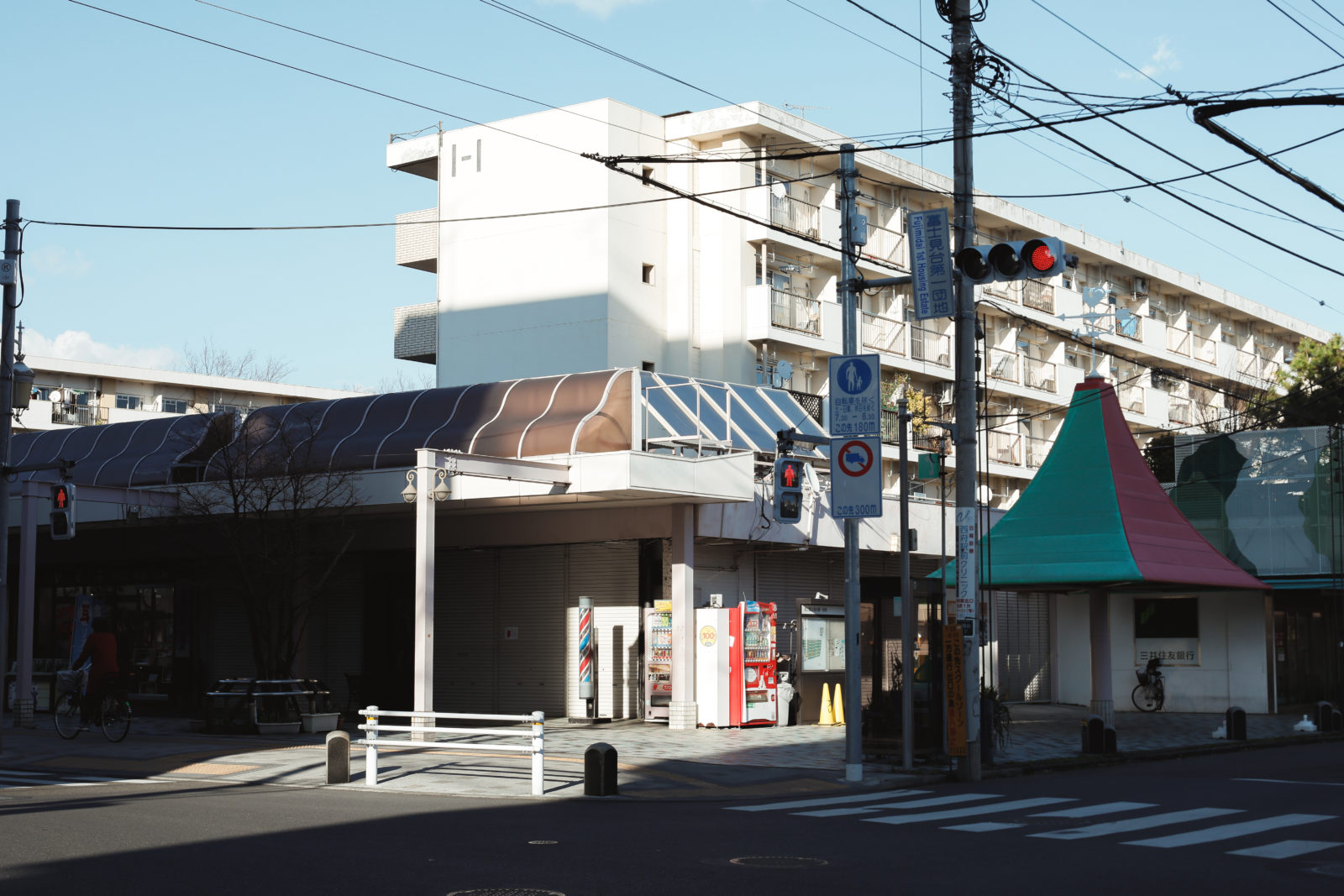
郊外はプライドが低い!?
ニュータウンには議論する場がないような気がして。サロン的な場所だったりとか、夜の社交場がまあないんですよね。
健全な街として開発されて、夜の社交場があってはいけないんでしょうね。
「飲みニケーション」が必要な繁華街、という感じではなかったので。
都心で暮らしていたときのように、ふらっと飲みに行って常連さんと話していたのがあったらいいなというのがスタートなんですけど、そういう人は周りにいないしな…と思って。
仲間もみんな、都心で仕事をしていますから。
空間はあっても人がいなかったら何もならないので、ちゃんと人を呼ぶための企画もセットでいるんだなと。
そう思ってるうちに仕事の量がだんだん増えてきて、しょっちゅうミーティングに呼ばれるようになりました。
せっかくこっちに落ち着いたスペースができて、家の近くにオフィスを構えたのに、結局は自分が避けていた満員電車に乗って都心に出かけなくてはいけない。すごく矛盾しているなと思って。
郊外って、いい環境があるのになんだかプライドが低いなと思ったんです。
「私たちは都心に向かって生きているので、もちろんそちらに出向きますよ」と。
便利なのでみんなハッピーなのかもしれないけれど、なんだかその感じがもったいないなと思いまして。
なんとか面白くしてこっちに来てもらえないかなと。
「事務所をきれいにしたのでぜひお越しください」と声をかけても、さすがに都心から小一時間かけてもらうには申し訳ない。
それがお店だったら、「美味しいコーヒーがある」とか「こんな面白いお店だよ」となると、もう少し来やすくなりますよね。
今はリモートでコミュニケーションを取ることもできるので、なるべくこっちで仕事をするスタイルを伝えたいなと考えたんです。
The suburbs have little pride?
I felt like there was no place for discussion in Newtown. It’s not like it’s a salon like a place or a place to socialize at night. I guess it should be developed as a wholesome town and not have a social scene at night. It didn’t feel like a downtown area that needed to be drunk.
I started out thinking that it would be nice to have a place where I could go out for a drink and talk to regulars like I did when I was living in the city, but even if there was a space, there would have to be no people there… All of my friends work in the city, too. There is a space, but if there are no people there, nothing will happen, so I think it’s necessary to have a plan to attract people.
From that time on, my workload gradually increased, and I was called into meetings frequently. Even though I’ve created a comfortable space here and set up my office close to home, I end up having to take the crowded train to the city center that I’ve been avoiding. I thought it was very contradictory.
I realized that the suburbs, even though they have a nice environment, somehow have little pride. We live in the city center, so of course, we’re going to be there. Maybe everyone is happy because it’s convenient, but I don’t think it’s worth it to be demeaning to be in the suburbs.
I was wondering if I could make it interesting and get people to come here. Even if I asked them to come to my office, “We’ve cleaned up the office, so please come and see us,” it would be too much to ask them to come from the city center for an hour.
If you say, “We have good coffee,” or “We have a shop like this,” it makes it a little easier for people to come. Now we can meet and communicate remotely, so I thought I’d like to convey the style of working here as much as possible.

シェアで物ごとが生まれ人が来る
以前の事務所は通りから奥まったブロックにあって路面には接していなかったので、もうちょっと前に出たいなというのと、広くしたいなというのでこっち(富士見台トンネル)に来て。
もともと、事務所と別の機能を設けようというのは構想していたんですよね。
周りでは空き家が少しずつ問題になってきていて、空き家も探したんですけど、ポンと団地内のこのテナントの情報が出てきたんです。
バス停が目の前にあって、路面で、この道はいちおう国立市のメインの通りになっていて。そうした立地を含めて、開いたところのほうがいいかなということで決めました。
今〈富士見台トンネル〉は半分は事務所、半分は「シェア商店」というかたちで、月額の会員さん向けにキッチンをシェアする状態にしています。
借りる人が店主としてお店を開くことができます、というふうにして。
すると、サービスをつくる人がシェア商店に来ます。事務所とは関係なくそうしたことが動いていると、食べたり飲んだりすることはもちろん、そこで議論が起こります。
そして、そこから派生してプロジェクトが生まれたりします。
それはもちろん建築に限らず、新しいお店をやってみようかとか、あの人とコラボレーションすればこんなお店をつくれるよね、とか。
そうしたことがすごく増えたので、わざわざ自分がホストとなって人を呼ぶことをしなくても、都心から人が来てくれるようになっていますね。
(#02に続く)
Things are born through sharing, and people come
The previous office was located on a block at the end of the street, not facing the road, so we wanted to go out a little further and make the office wider, so we moved here (Fujimidai Tunnel). We originally envisioned having a separate function from the office, didn’t we?
We also looked for vacant houses that were becoming a problem around us, but this tenant in the complex just popped up. There is a bus stop in front of me, and the front road is the main street of Kunitachi city. We decided that it would be better to have an open space, including the location.
Half of the Fujimidai Tunnel is an office, and the other half is a “share store,” where the kitchen is shared for monthly members. The renter can open a shop as a shop owner, and so on.
Then comes the person who will create the service. When such things are in motion that has nothing to do with the office, let alone eating and drinking, that’s where the arguments come into play. At the same time, a project may be born out of it.
It’s not limited to architecture, of course,
but it’s not limited to a new shop, and if you collaborate with that person, you can make a shop like this.
Of course, it’s not limited to architecture, but it’s also something like, “Let’s try a new shop,” or “If you collaborate with that person, you can make a new shop like this.” Since that has increased so much, people are coming from the city center without having to go to the trouble of hosting themselves and inviting people over.
(Continued on #02)
